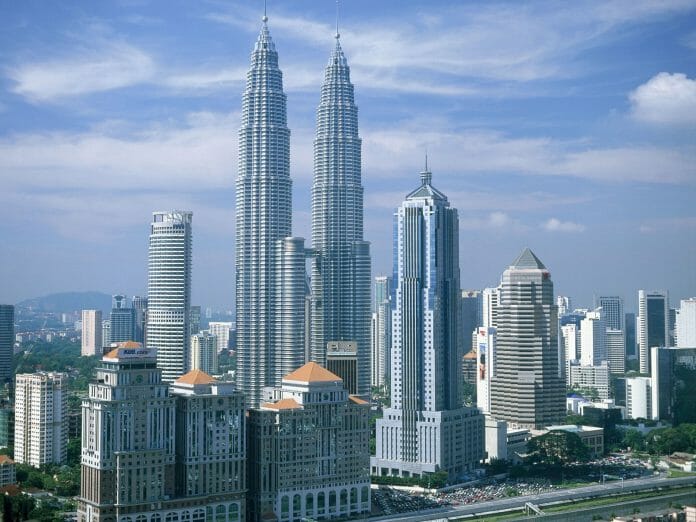By Afifah Suhaimi
Opening the country’s border for international tourists even from the ‘green nations’ should be considered again – or at least until the long-awaited vaccine arrives in the market; because this is the starting point that could lead to the second wave of the pandemic.
Although by allowing international tourists to enter our country is a much-needed strategy to ramp up our economic growth, the national priority would need to remain “health first”.
Instead, there is another alternative that should be focused on to speed up the economic recovery, which is by propping our domestic tourism.
While many other countries like Spain, Jamaica and Turkey have started welcoming the international tourist again, let us not be deceived by their moves, but instead, we should have to take a more cautious approach when it comes to reopening the border – what’s more when the imported Covid-19 cases are seen fluctuating day by day.
In the same token, said Dr Noor Hisham, “We need to be vigilant. The recommendation should not be to ease the border, but to tighten it’’.
Although some might think that we should not get too distracted by the threats of the pandemic, well, think again.
Reopening the international border is not as easy and less-risky as reopening the mall for instance, but it requires meticulous planning from many parties, in which, if the steps taken are erroneous, could jeopardize the safety of our country as well as the health of nations.
However, it is critical to note that by doing this, not that we are acting ‘not-proactive’, but instead, we are actually protecting the nation from all uncertainty of the pandemic.
Ask yourself – do you want our country to return to the day when the Movement Control Order (MCO) took place, whereby all the unimportant economic sectors had to be stopped from operating?
Well, just to recap, due to the MCO implementation, Malaysia is facing the worst quarterly economic contraction in more than two decades, which is at 17.1 per cent in its second quarter of 2020.
However, Malaysia seems to have gone through the worst moment, and now, is gradually reviving its economy – as lockdown measures have eased under the Recovery Movement Control Order.
It seems that we have just been able to breathe again from the economic catastrophe caused by the pandemic, given that almost all business sectors have recovered, albeit slowly.
Thus, while the opportunity to gradually recover from the pandemic is still there, it is crucial for us to use it wisely and not being hasty – by chasing after the ‘so-called economic stability’ which still remains ambiguous.
Globally, if we take a look at the foreign country like Canada, they have sternly decided to continue to keep its doors firmly shut to most foreigners, despite the pleas that they received from affected groups — such as the travel industry.
In return, many Canadians applaud their government for its strict travel restrictions, implemented to help stop the spread of COVID-19 in the country.
As a matter of fact, why don’t we just focus on bolstering our domestic tourism first, instead of easing our international border?
Positively, the easing of MCO in May and June has provided some relief to businesses in the domestic tourism sector, as hotels in certain tourist destinations had seen a spike in occupancy rates.
Besides, Malaysian Tourist Guides Council president, Jimmy Leong told The Star that the domestic tourism sector was moving faster than expected, where high occupancy was observed over the past few weekends at selected destinations such as Melaka, Penang, Port Dickson, Kelantan and Pulau Redang.
It looks like the government’s initiative to reinforce domestic tourism is bearing fruit – although it may not be as big as before, the improvement is there. Indeed, more strategic planning and action need to be taken to continue ramping up this industry.
For instance, businesses and influencers should leverage social media platforms to promote our domestic tourism industry, since social media plays a significant role in our lives, and also because it’s easy to draw attention by stimulating the eyes of the people through appealing visuals.
Correspondingly, this is in line with the Deputy Tourism, Arts and Culture Minister Jeffrey Kitingan, as he pointed out that “The tourism industry, whether leisure or business, is dependent on social media, given the nature of picturesque images as a way to introduce a destination to the world,”.
Next, the government could also inject another round of financial assistance into this industry which can be used to run ads regarding Malaysian tourism, be it in the form of social media ad, print ad or billboard ad.
Through these ads, it would encourage people to buy, dine and travel to nearby shops and attractions.
This financial assistance could also be used to demonstrate how travellers can safely enjoy activities and attractions, a campaign with safety messaging with people wearing masks, practising physical distancing and sanitization.
Besides, have you heard about culinary tourism?
In brief, it is also known as food tourism, where tourists visit novel or known places and explore its culture through food and dishes prepared in that region. Through this initiative, it may involve a wide variety of activities such as cooking classes, food festivals, and others.
Apart from being an important role in promoting destination marketing, it is crucial for hotels and tour agencies to expand their culinary tourism choices in order to meet their customers’ demands and provide quality food tourism experiences.
Given that tourists usually spend over a third of their holiday budget on food and drink, and even up to 50% when food is the primary travel purpose, bolstering this industry via this strategy wouldn’t hurt.
Afifah Suhaimi is Research Assistant at EMIR Research, an independent think tank focused on strategic policy recommendations based on rigorous research.









